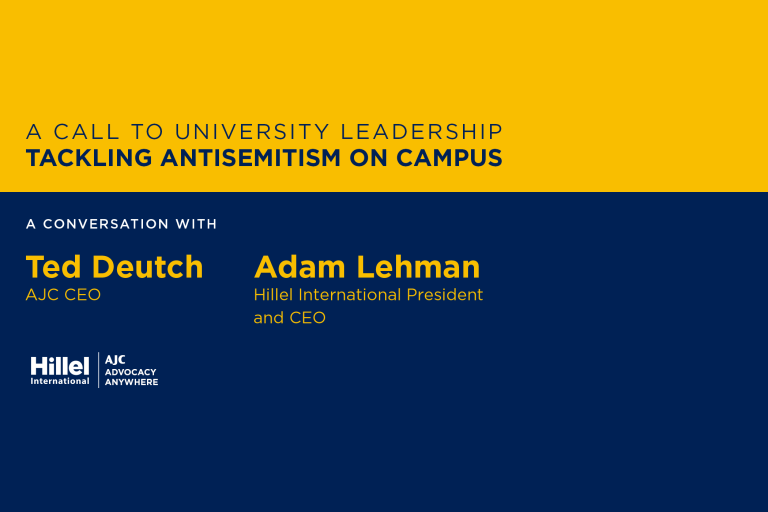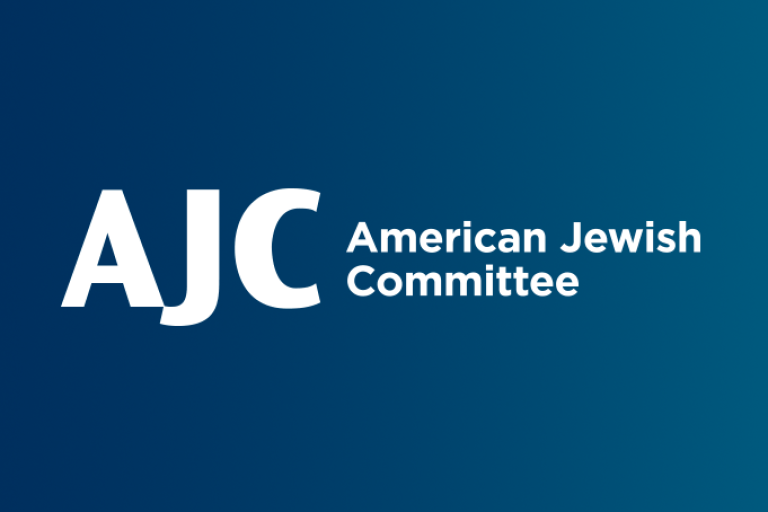February 5, 2015 — Berlin, Germany
AJC Berlin is disputing a new study by the Technical University’s Center for Research on Antisemitism (ZfA) that charges Jewish and civil society organizations with exaggerating and exploiting antisemitic incidents in Berlin for their own gain.
"We need studies that clearly define the problem of antisemitism instead of questioning its very existence," said AJC Berlin Director Deidre Berger. “Trivializing hatred of Jews is dangerous.”
“At a time when the future of Jews in Germany and in Europe as a whole is being called into question, downplaying the danger of antisemitism is unacceptable,” Berger continued. “The new ZIA study displays a disturbing lack of sensitivity to the justified fears of Berlin’s Jews, which have grown considerably in the wake of the numerous antisemitic incidents last summer.”
Berger expressed surprise about charges of exaggeration, saying, “Instead of taking seriously concerns in the Jewish community about the pervasiveness of antisemitism, the study charges Jewish organizations and individuals with biased judgment. Such sweeping generalizations defame and vilify Jews and Jewish organizations.”
The recent study, “Antisemitism as Problem and Symbol – Phenomena and Interventions in Berlin,” was compiled by the Center for Research on Antisemitism on behalf of the Berlin state government’s State Commission against Violence. The goal was to obtain an overview of antisemitism manifestations and develop strategies for dealing with them. Instead, the study focuses much of its attention on what it terms the “symbolism” of antisemitism.
“Antisemitism is not a symbol,” said Berger. “It is an attack on democratic values. Instead of providing insights into the nature and sources of contemporary antisemitism, the study delivers a political broadside against postwar German democracy, which the authors accuse of instrumentalizing antisemitism, German-Israeli relations, and Holocaust memory.”
She added: “Rather than providing an objective academic analysis, this report promotes an anti-Israel and anti-German government political agenda.”
Berger noted that the study seems to defend anti-Israel and anti-Jewish sentiments within Muslim society by linking it to “direct personal painful experience, or experience of the parents’ or grandparents’ generations, related to the conflict in the Middle East,” and by asserting that antisemitic statements uttered by young Muslims are the consequence of the widespread discrimination and racism that they experience in Germany.
“Antisemitism – regardless of the circumstances in which it is expressed – can never be justified,” said Berger. “Characterizing Muslim pupils primarily as victims of discrimination is paternalistic and robs them of the opportunity to assume their rightful role as responsible citizens in the fight against antisemitism.”
AJC Berlin has issued a commentary, “Defining Antisemitism: The Battle for Interpretation,” which warns about the dangers of trivializing antisemitism by deeming it a justified reaction to policies of the Israeli government.
It suggests specific measures to fight antisemitism, including the incorporation of background information and counter-strategies in training programs for teachers, police, law enforcement authorities and other government officials. Another suggestion is a major revision of police reports on antisemitic incidents to provide greater detail about the circumstances and perpetrators.
Since the opening of the AJC Berlin Lawrence and Lee Ramer Institute for German-Jewish Relations in 1998, AJC has worked on strategies and educational programs to combat antisemitism. With its bi-monthly Taskforce: Education on Antisemitism meetings, AJC Berlin provides an ongoing platform for NGO representatives and educational experts to exchange best practices on pedagogical approaches to fighting antisemitism.


